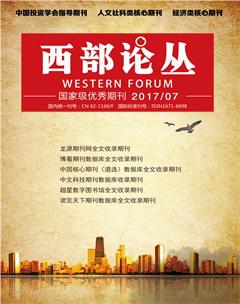There Is No Perfect Solution
张东悦 刘琨 刘映雪 王潇舶
It is important to keep in mind that even though we do make an action and regulate the media industry, indecent content may not be fully under control. There are always fish that escapes from the net, and there are always an issue of standard (what exactly should be defined as indecent). This essay is going to discuss the different regulations that China and the U.S. are implementing, their pros and cons and their problems. It can be analyzed and concluded that they are both not perfect especially when it comes to the problem of standard.
Chinas regulation can be summarized very simply as “forbidding anything that contains indecent content to appear in the public eye”(The State Administration of Radio Film and Television, Para.3). Movies, TV series and TV shows are audited by the State Administration of Radio Film and Television (SARFT) before they come into the public view. If a movie or TV show has a healthy and appropriate overall theme and only contains a very little part of indecent content, then it can be broadcast with the inappropriate part cut off. When the whole movie or show is considered by the government negative and can be a very bad influence to the public, this kind of works are officially banned by the government and therefore theoretically cannot be found or seen anywhere, either on TV, in cinema or online. It keeps the public from anything that is possibly harmful.
However, reality is not always the case. With the rapid development of the Internet and social media, people are having more and more ways to have access to these prohibited films or programs through illegal secret websites or other not officially approved ways, especially when nowadays cloud technology is gaining the heat. For example, Baidu Cloud has become a major way to download those prohibited movies. The regulation can never cover 100%.
Chinas regulation policy brings a problem of standard. To make sure that the public has no access to anything that may create possible bad influence, the government has a very strict standard of defining what is appropriate and what is inappropriate. On the official website of SARTF, among the management regulations, one of them states that “anything that propagates obscenity, gamble and violence should not appear in the TV or movie work”(The State Administration of Radio Film and Television, para.7). However, this regulation can be tricky when it is being practically carried out. A Chinese TV series called The Legend of the Empress Wu Meiniang, was broadcast by several mainstream TV channels. When it first came out, a lot of people was “attracted” to the lower-cut clothing of the actresses. Just a couple of weeks after the broadcast, it was censored suddenly. When it was replayed again on the TV station, people were surprised to find that all the scenes that contains lower-cut clothing of the actresses are cut. It turned out that when the officials were auditing this TV series for the first time they didnt see it as a problem. However, when it was broadcast to the public, the comment and reaction of people made them realize that it was inappropriate. This is a very good example of the difficulty in setting a standard.
As a comparison, industry regulation in America is worth mentioning. Unlike China, America has a whole different system. Movies, TV series and video games are voluntarily rated according to their content. Take movie for example. Motion Picture Association of America (MPAA) rates movie from G (General Audience) to NC17 (No One 17 And Under Admitted). This is a very good way to protect young people and meet the need of adult audience as well. The plot of the movie wont be damaged, and audience will be able to see a whole and complete story.
However, this whole system leaves most of the decision-making to parents. If a kid finds Fifty Shades of Grey online, it is his or her parents job to be aware of the fact that this movie is rated as inappropriate to children and stop his or her from watching. This raises the question of how much should parents be trusted. Being an adult doesnt necessarily mean that one has the full judgement and understanding of the harm of indecent content. Moreover, what MPAA considers as inappropriate may seem totally acceptable for some parents, and therefore they may simply allow their children to watch it.
It can be concluded from the analysis above that either Chinas way or Americas way of regulation have strengths and weaknesses. Both ways leave the public possibility to have access to indecent content. It is impossible to fully control the indecent content from being exposed to the public. We should keep in mind that the perfect solution does not exist and that regulations are helpful in some ways, but we can never pin all of our hope on them.
Works Cited
“Regulation of Audio and Video Products.” The State Administration of Radio Film and Television, 21 Mar. 2011

